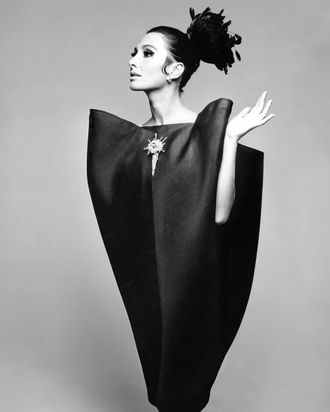The Evolution and Impact of Modern Fashion
Modern fashion, a dynamic and ever-evolving landscape, reflects the complexities and diversities of the 21st century. This multifaceted industry, influenced by cultural, social, technological, and environmental factors, continues to redefine aesthetics, values, and norms. As we delve into the essence of contemporary fashion, we uncover its innovative spirit, its commitment to sustainability, and its power to influence and mirror societal changes.
The Rise of Individualism
One of the most prominent features of modern fashion is the celebration of individualism. In contrast to the homogeneity of previous eras, today’s fashion emphasizes personal expression and uniqueness. This shift is evident in the eclectic styles that dominate runways and street fashion alike. From the resurgence of vintage and thrifted clothing to the popularity of custom-made pieces, individuals are increasingly seeking ways to stand out and convey their identity through their wardrobe choices.
Technology and Fashion: A Symbiotic Relationship
Technology has revolutionized every aspect of the fashion industry, from design and production to marketing and retail. Advanced materials and innovative fabrication techniques have expanded the boundaries of what is possible in fashion design. Smart textiles, 3D printing, and wearable technology are not only enhancing functionality but also offering new aesthetic possibilities.
Moreover, the rise of e-commerce and social media has transformed how fashion is consumed and disseminated. Platforms like Instagram, TikTok, and Pinterest serve as global stages where trends are born and spread instantaneously. Influencers and fashion bloggers have become key players, shaping public tastes and preferences with unprecedented speed and reach.
Sustainability: The New Fashion Imperative
As awareness of environmental issues grows, sustainability has become a central concern in modern fashion. The industry, historically criticized for its environmental impact, is undergoing a significant transformation towards more sustainable practices. Brands are increasingly adopting eco-friendly materials, ethical manufacturing processes, and circular economy principles. Initiatives such as recycling programs, biodegradable fabrics, and zero-waste designs are gaining traction.
Consumers, too, are playing a vital role in this shift. There is a growing demand for transparency and accountability, with shoppers prioritizing brands that align with their values. This shift towards conscious consumption is driving innovation and fostering a new era of responsible fashion.
The Intersection of Fashion and Social Justice
Modern fashion is not just about aesthetics; it is also a powerful platform for social commentary and activism. Designers and brands are using their influence to address issues such as gender equality, racial diversity, and LGBTQ+ rights. Fashion shows and campaigns are increasingly inclusive, featuring models of diverse backgrounds, body types, and identities.
This move towards inclusivity is not merely a trend but a fundamental change in the industry’s ethos. By challenging traditional beauty standards and advocating for representation, the fashion industry is contributing to broader societal progress and helping to dismantle long-standing prejudices.
The Future of Fashion
Looking ahead, the future of fashion promises to be even more innovative and inclusive. With continuous advancements in technology, the possibilities for customization and personalization are limitless. Virtual and augmented reality could revolutionize the shopping experience, allowing consumers to try on clothes digitally and make more informed purchasing decisions.
Furthermore, the push for sustainability will likely intensify, with more brands adopting regenerative practices and exploring alternative materials. As the industry continues to grapple with its environmental impact, we can expect to see a greater emphasis on circular fashion, where products are designed to be reused, repurposed, or recycled.
Conclusion
Modern fashion, with its blend of individualism, technological integration, sustainability, and social consciousness, is a reflection of our times. It is an industry that not only shapes trends but also responds to and influences societal shifts. As we navigate the complexities of the contemporary world, fashion remains a powerful medium for self-expression, innovation, and change. Whether through the clothes we wear or the values we uphold, fashion continues to be a significant and dynamic force in our lives.

You May Also Like
Unveiling the Essence of Style
In the modern age, the art of modeling has become a captivating and influential force in the world of fashion. Models possess a unique ability to bring fashion to life, showcasing the essence of style through their poise, confidence, and runway presence. In this article, we will delve into the world of modeling, exploring the...
Daryna Skakun
Imagine a creative soul with a deep connection to both the mind and the arts, someone who navigates the world with a blend of Scandinavian minimalism and Parisian elegance. They find solace in meditation and yoga, allowing them to channel emotions through the written word in poetry. Their life is fueled by passions that range...